Equality from the perspective of youth
“Since childhood, my parents and grandparents always told me that a boy must be strong and successful so that he will grow up to be second to none and become a breadwinner for the family.”
“I used to believe that a girl is usually more skilful and careful than a boy.”
“Girls just grow up, get married, and then perform the role of a wife and a mother. That’s why everyone thinks that girls should choose an easy job and spend time with their families.”
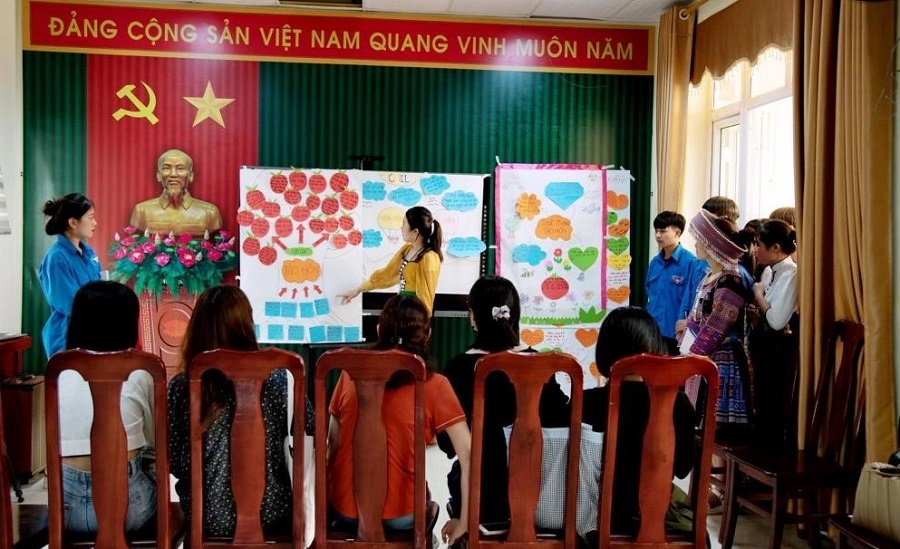 |
These are just three of the very sincere thoughts shared by 40 ethnic minority youths in Van Ho district in Son La province in the northern region. Living in a family and community where people have such beliefs, these norms are deeply ingrained in the subconscious of young people. This can lead to perpetually reinforced biases around the expected abilities and roles of men and women as well as their social expectations, status, and behaviour.
Despite agreeing these biases are wrong, youths today do not know how they can change these preconceptions.
After finishing the ninth grade, Lo Thi Van and many other girls were advised, “It’s enough for girls to study, then stay home and get married”. Van feels sad and resentful about this. Her dream is to continue her studies further and have the opportunity to do the work she dreams of. However, Van does not know how to persuade her family to support her plans and ambitions.
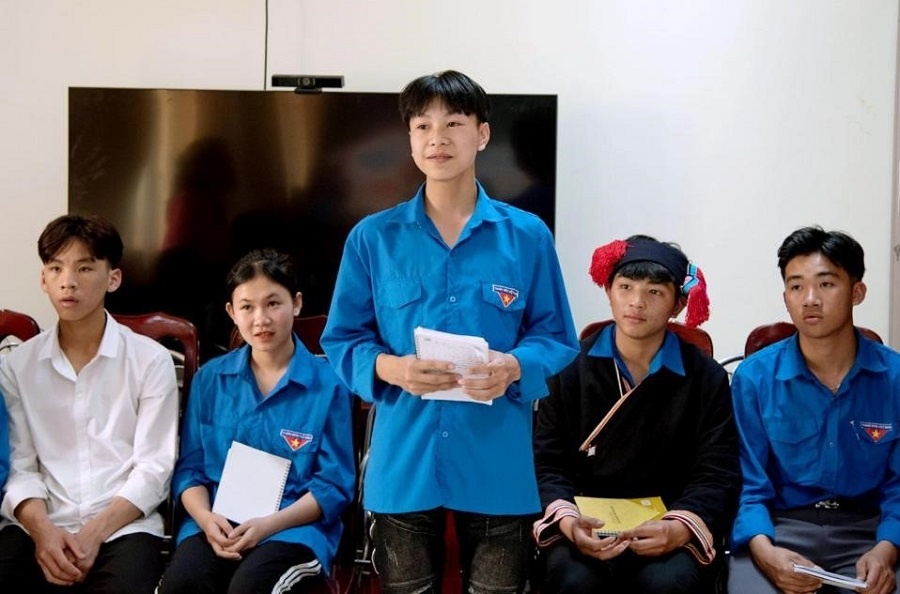 |
Meanwhile, other students shared stories of the domestic violence they witnessed, and the uncomfortable emotions they have experienced as a result. They recognise the consequences of domestic violence on individuals, families and society, especially children. There were many times when they wanted to intervene and support victims, but did not know where to start. And most importantly, like many other young people, they lack the belief that they can meaningfully contribute to eliminating gender inequality and domestic violence in particular.
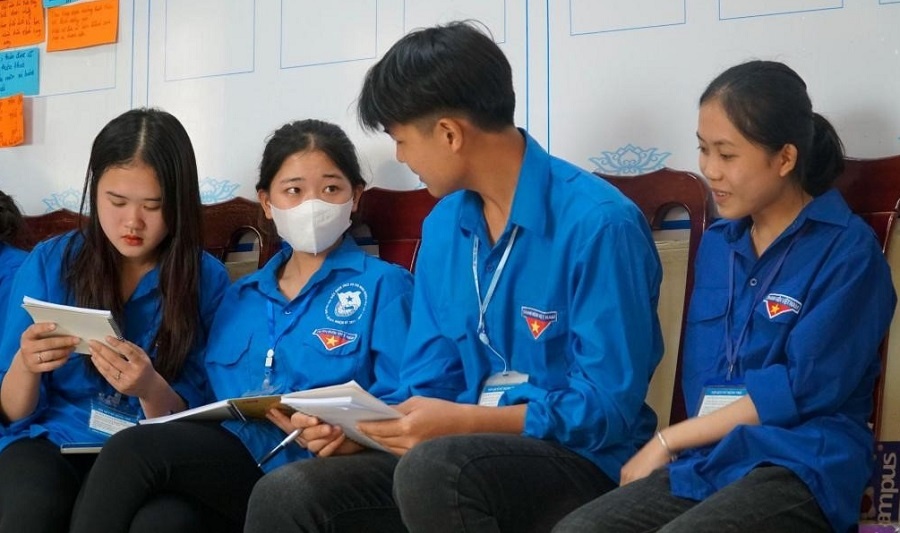 |
Let’s start today!
One student said, “In the past, I thought gender equality was only for the benefit of women. Now I understand that gender equality not only brings benefits and happiness to women, but also to men.”
The attendees discussed and selected four gender inequality issues that young people are concerned about and want to solve. These were domestic violence, child marriage, child sexual abuse, and the preference shown to boys in families.
Through experiential exercises and analysing the causes and consequences of each problem, they realised that “change must start today.”
Huong said, “The training helped me realise that when facing a domestic violence case, we need to speak up and seek help from the local authority and the community, not just keep quiet.”
Many other solutions were also proposed by the students, and they discussed how to implement these ideas in the short and long term. For example, after participating in the training, the participants said they would share their concerns about gender bias and stereotypes, and about the consequences of child marriage, sexual abuse, and domestic violence, with their own classrooms and communities. They also realised that first the change must come from themselves, and needed to start immediately, before they went on to campaign with other young people to change.
“Let's start today” was also the message of the seminar organised by the VSF and the Van Ho Department of Education and Training after the course. The seminar saw the participation of 40 ethnic minority youths and 21 young journalists and communication officers from VTV, VTC, VOV, Tien Phong, Dan Viet, Labour, and Family Vietnam magazine.
The seminar was an opportunity to strengthen the voice and connection between youth and young journalists, thereby spreading positive stories and best practices to promote equality. At the seminar, journalists were inspired by the creativity and enthusiasm of the students through their presentation of each prominent gender issue.
Tran Hong Diep, deputy director of the VSF, said, “As a social, non-profit organisation with a mission to promote the implementation of the Sustainable Development Goals, especially those targeting equality, education, health and the environment, we have always believed in the ability of young people to change and pioneer solutions to social problems.”
"As the facilitator of both the training course and the seminar, I am delighted that these young people have developed specific and feasible solutions to eliminate gender inequality in themselves, their family and communities. The VSF will continue to accompany them so that these initiatives can be put into practice,” Diep added.
The training course and seminar were just two of six activities from the “No voice, no equal future” project, organised by the VSF with financial support of the US Embassy in Vietnam since October 2022. The project’s budget has seen contributions from the sales of mooncakes, a fundraising initiative named “Moon of Hope” in 2021.
The project has seen participation and technical advice from three alumni members of academic and professional exchange programmes funded by the US government, including Diep of the VSF; Nguyen Phuong Chi, deputy head of the Department of International Cooperation and Scientific Management under the Vietnam Women’s Academy; and Hoang Thi Huong, gender activist and founder of Toha Coffee.
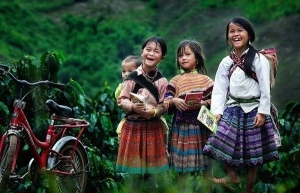 | UNESCO continues promoting education for ethnic minority girls The UNESCO Office in Vietnam on March 29 announced the second phase of the project “We are ABLE – Promoting Gender Equality and Girls’ Education for Children in Ethnic Minority areas of Vietnam” with ABLE stands for the project's slogan "Achieving Better Living and Education", which emphasises confidence in the ability of ethnic minority children, especially girls, to overcome challenges. |
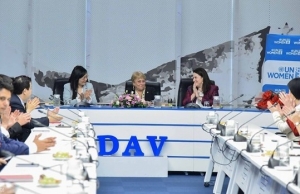 | Former Chilean leader talks about gender equality with Vietnamese diplomats, students Former President of Chile Michelle Bachelet Jeria, who is also former UN High Commissioner for Human Rights and former Executive Director of UN Women, met with female diplomats and students of Vietnam on April 3 to talk about the role of women leaders in multilateral organisations along with diplomatic, political, and social activities. |
What the stars mean:
★ Poor ★ ★ Promising ★★★ Good ★★★★ Very good ★★★★★ Exceptional
Related Contents
Latest News
More News
- Vietnam Television launches third 'Song Sau Lu' project for 2025 (December 15, 2025 | 08:00)
- Closing workshop highlights five-year impact of Fair for All project (December 12, 2025 | 16:22)
- Stakeholders mobilised before new child safety rules take effect (December 10, 2025 | 09:00)
- Vietnam receives emergency international relief as regional flooding intensifies (December 04, 2025 | 15:11)
- AmCham scholarships awarded to students (December 02, 2025 | 16:46)
- Vietjet flights carry love to devastated central region (November 28, 2025 | 11:35)
- SCG Sharing the Dream supports Vietnam’s youth and sustainable development goals (November 28, 2025 | 10:55)
- Siemens Caring Hands donates $34,700 for disaster relief in Vietnam (November 26, 2025 | 20:25)
- Ireland extends support for the Resilience First initiative (November 26, 2025 | 15:24)
- South Korea funds IOM relief for Vietnam’s typhoon-affected communities (November 24, 2025 | 15:33)

 Tag:
Tag:




















 Mobile Version
Mobile Version